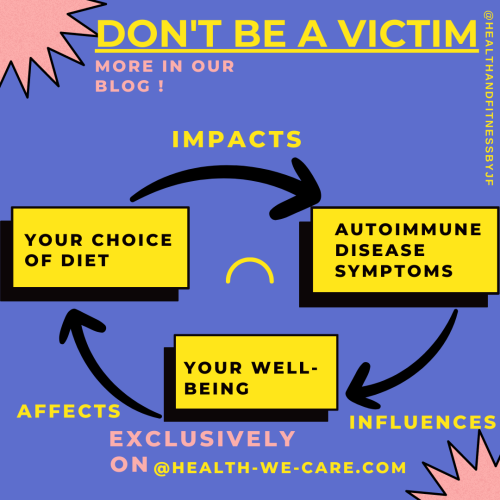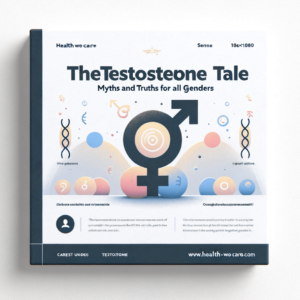How can dietary choices even fuel autoimmune disease symptoms ? Living with an autoimmune disease can present various challenges, but one area where you have significant control is your diet. While there is no one-size-fits-all approach to managing autoimmune diseases, adopting a healthy eating plan can play a crucial role in alleviating symptoms and supporting overall well-being. We will demonstrate dietary strategies and food choices that can help reduce autoimmune disease symptoms.
Embrace an Anti-Inflammatory Diet
For a dietary level up you should incorporate foods rich in anti-inflammatory properties into your diet, such as fatty fish (salmon, sardines), leafy greens, berries, turmeric, ginger, and olive oil. These foods can help reduce inflammation and provide essential nutrients for optimal immune system function. Thirsty for more ideas for a healthy diet ? Visit our Instagram page here.
Focus on Whole, Nutrient-Dense Foods
A look for the whole, unprocessed foods that are packed with nutrients is key. Include a variety of fruits, vegetables, whole grains, lean proteins, and healthy fats in your meals. These foods provide vital vitamins, minerals, antioxidants, and fiber, supporting your overall health and immune system. Especially, in the morning it gives you the proper kick start. Who needs coffee, if you have a berry bowl !
Identify your Food Sensitivities and Allergies
Certain foods can trigger or worsen autoimmune symptoms for some individuals. Furthermore, consider working with a healthcare professional or registered dietitian. This will help to identify any food sensitivities or allergies and create a customized elimination diet if needed. If you need help with creating a customized diet plan contact us here.
Gut Health = Your Health
You should know a healthy gut can positively influence autoimmune disease symptoms. Therefore, Include probiotic-rich foods like yogurt, kefir, sauerkraut, and kimchi to promote a healthy gut microbiome. Additionally, consume fiber-rich foods that support digestive health, such as whole grains, legumes, and vegetables.
Reduce Processed Foods and Sugar Intake
Processed foods and added sugars can contribute to inflammation and exacerbate autoimmune symptoms. That’s why you should minimize or avoid processed snacks, sugary beverages, and refined carbohydrates. Instead, aim for whole food alternatives and natural sweeteners like honey, maple syrup or agave nectar in moderation.
How about Anti-Inflammatory Supplements ?
Some supplements may complement a healthy diet and support autoimmune disease management. Talk to your healthcare provider about potential supplements such as omega-3 fatty acids, vitamin D, turmeric, and probiotics. A list with the Top 5 supplements of 2023 is here.
Practice Mindful Eating
Pay attention to your body’s cues and practice mindful eating. Look, also out for changes and reactions to certain foods and the time you’re eating them. Eat slowly, chew thoroughly, and listen to your body’s hunger and fullness signals. This approach can help prevent overeating, promote proper digestion, and enhance overall well-being.
Our Conclusion
Harnessing the power of nutrition can make a significant difference in managing autoimmune disease symptoms and enhancing overall well-being. While dietary changes may not provide a cure, they can play a vital role in supporting your body’s healing processes and reducing inflammation.
By adopting an anti-inflammatory eating you are empowering yourself to take an active role in your health journey. Furthermore, remember personalized guidance from healthcare professionals is essential. Another, tailor these strategies to your unique needs and optimize the benefits for your specific autoimmune condition.
Starting to take care of your nutrition plan is the first step to a better life full of joy. In addition are there any questions bothering you ?Reach out on our Instagram or contact page ! Are you affected by any autoimmune disease ? If yes write us a private message on our instagram page to be featured in a story and win up to 100$ !

Sources
The American Autoimmune Related Diseases Association (AARDA) Visit: www.aarda.org
National Institute of Diabetes and Digestive and Kidney Diseases (NIDDK) Visit: www.niddk.nih.gov
The Paleo Mom: Dr. Sarah Ballantyne’s website focuses on the connection between diet and autoimmune diseases. Visit: www.thepaleomom.com
The Institute for Functional Medicine (IFM): Most important, IFM explores a functional medicine approach to managing autoimmune diseases and provides resources on using nutrition and lifestyle interventions. Visit: www.ifm.org






